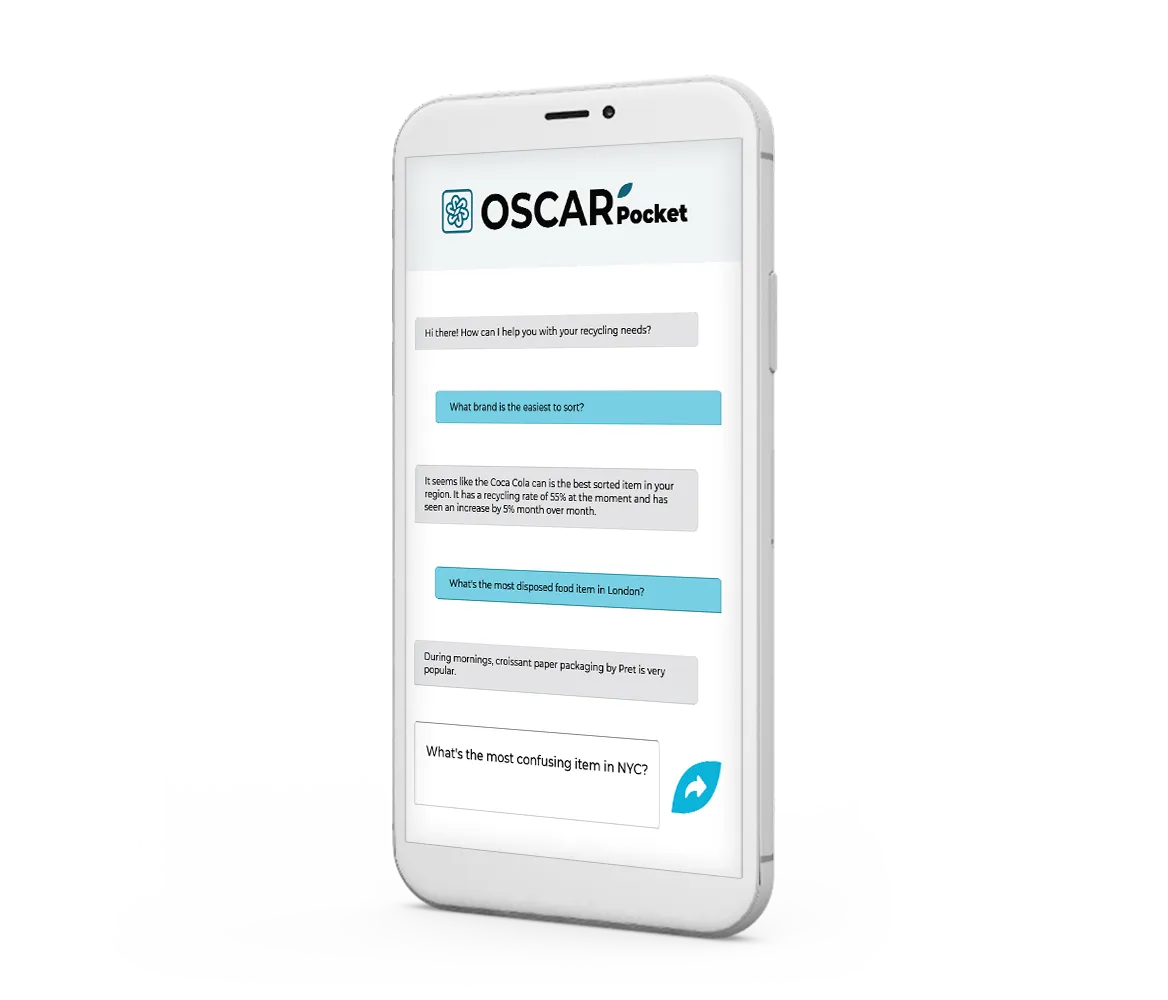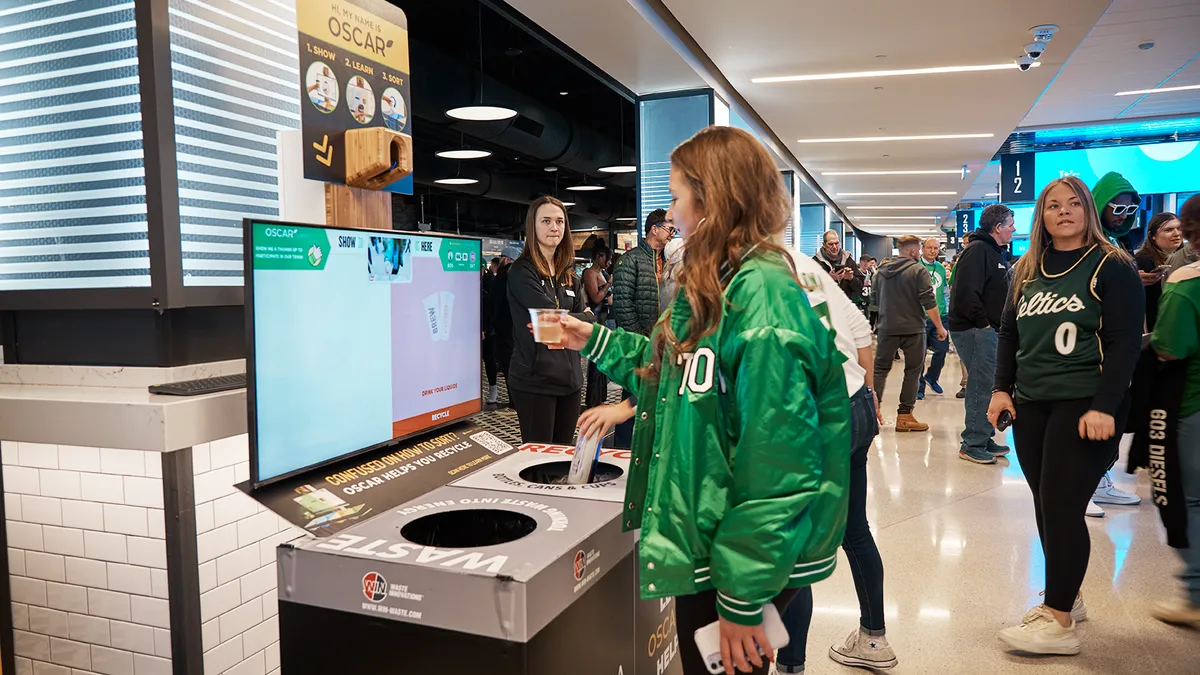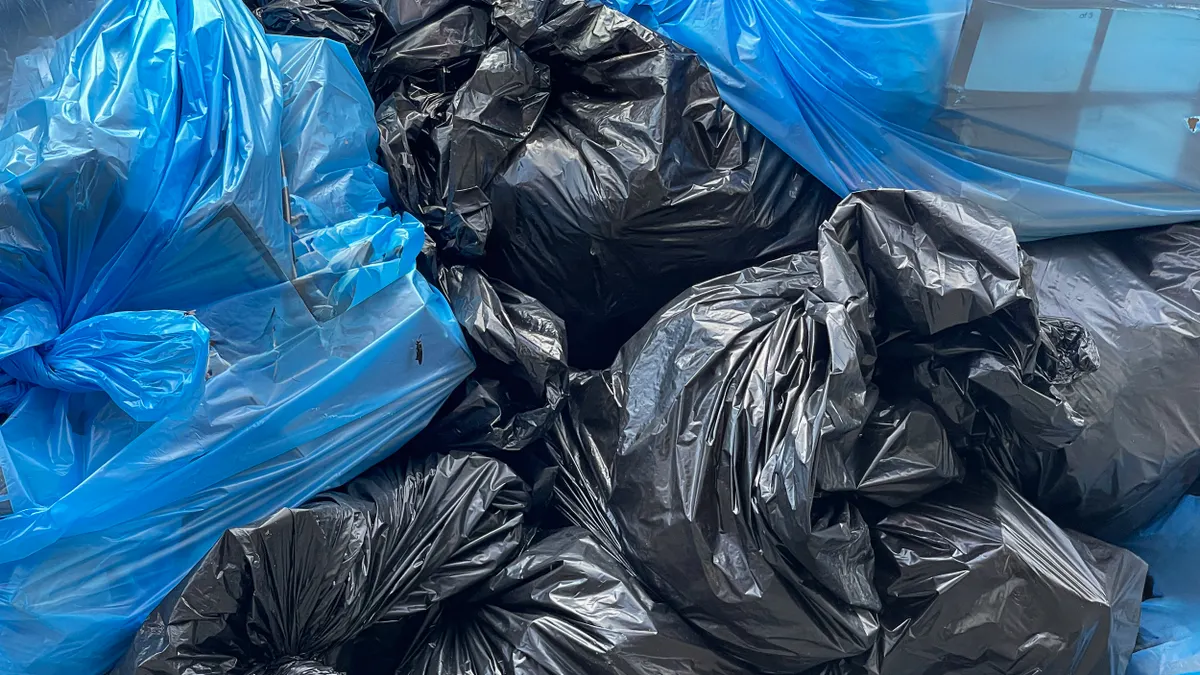AI-based sorting technology company Intuitive AI wants to collaborate with recyclers, packaging companies and municipalities to make its newest sorting app more accurate.
Its new Oscar Pocket app, meant to help people recycle correctly at home, launched last week in a beta version. The chat-based system — which CEO Hassan Murad calls “ChatGPT for waste” — invites users to type in questions about recycling and get AI-generated answers tailored to their specific location and local hauler’s rules. Future versions of Oscar Pocket will also allow users to point their phone camera at an item to get sorting advice, he said.
The new app’s ability to deliver locally-specific recycling and waste information hinges on having enough data from “collaborators” to help the AI interface give the right advice, said Murad, who launched Intuitive AI in 2019 along with co-founder Vivek Vyas.
“We want to work with more collaborators — basically anybody that is generating, creating, handling packaging — that can actually provide information on what they want people to be sorting,” he said. “It comes down to the city level: What contract do they have? What specific colors [of plastic] are involved? What do they actually do with the stuff that they pick up on your curbside? They have the option to provide that information and make it accessible to everybody.”
The beta version already draws from publicly-available municipal recycling and waste information from about 150 cities around the world, as well as input from some packaging and waste management companies, he said.

The company also uses data it collects from its other sorting product, Oscar Sort. That technology helps visitors at stadiums, universities and other public places recycle correctly by interacting with them on large screens placed above trash and recycling bins.
Oscar Pocket joins a cohort of other recycling apps and programs meant to tackle consumer confusion over recycling rules and make it easier to drop items in the correct bin. The challenge is corralling the data needed to make such apps and programs accurate–particularly for users who live in areas with myriad recycling rules, haulers and special programs.
The Recycling Partnership recently announced its packaging label feature, Recycle Check, which draws on data from its own national recycling database to give users recycling options based on their ZIP code when they scan a special QR code. Companies like Scrapp work with communities, retailers and brands to help them program their recycling rules into the app and send their customers reminders or rewards for correctly recycling.
AI is already a well-known feature in other recycling sectors, such as AI-powered robots in MRFs, and Intuitive AI is betting on the technology becoming a more powerful player in the recycling industry in the future. Murad said Oscar Pocket’s AI platform works slightly differently from other recycling apps because it analyzes regularly-updated information and recycling rules from all over the world, not just specialized local programs or databases.
“We want anybody from anywhere to be able to ask [Oscar Pocket] a question and they can get a response on where this item should go,” he said.
Oscar Pocket’s chat feature is also designed to provide detailed answers to users’ questions, which Murad said is what will set it apart from other new recycling apps.
Oscar Pocket launched as a free service, and Murad said the company intends to keep it that way for the time being. Intuitive AI’s major revenue source comes from programming bespoke Oscar Sort systems, which are individually tuned to specific contracts or sorting rules at the location it serves. Users are able to track the technology’s impact through customizable data streams.
Oscar Sort also features a gamification experience, which Murad said helps draw in users and get them to care about recycling correctly. The rewards are tailored to the environment: For example, the Oscar Sort at TD Garden in Boston offers a chance to win cash or Boston Celtics merchandise for recycling correctly. Oscar Pocket will also include a similar reward feature that could offer items like coupons or deals for local businesses.
The feature is similar to the incentive-based reverse vending machines installed recently in baseball and soccer stadiums, which collect bottles while offering team merchandise as a prize.
Incentives are a necessary part of the design, Murad said, because users will improve their habits when an experience is personal and fun. At Western New England University, the university’s food vendor, Aramark, said students were already motivated to recycle but were unknowingly doing it wrong. The university installed an Oscar Sort on campus last year to draw students to the interactive experience and cut down on contamination expenses.
Though Oscar Pocket is in the early stages, Vyas said the program is meant to serve as a long-lasting recycling resource. Users will be able to type in questions about other sustainability topics, like backyard composting advice or general information about why recycling is so complex. Future versions of the app will add a “quick recognition” feature through the phone’s camera.
“We’re just trying to take recycling education and democratize it by giving it to anyone with a phone. We’re putting that sorting power into everybody’s pocket,” Vyas said.



















